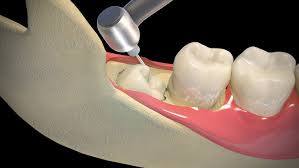What Foods to Avoid If Alkaline Phosphatase Is High: A Detailed Guide for Optimal Health

When diagnosed with high alkaline phosphatase levels, adjusting your diet can be a critical component in managing and improving your health. Alkaline phosphatase (ALP) is an enzyme found in various tissues throughout the body, including the liver, bones, and digestive system. Elevated levels of ALP can be indicative of underlying health conditions, such as liver dysfunction, bone disorders, or gallbladder problems. To help you navigate your dietary choices, this article will detail what foods to avoid if alkaline phosphatase is high, provide practical tips, and emphasize the role of proper nutrition in maintaining optimal enzyme levels.
Understanding Alkaline Phosphatase and Its Role
Alkaline phosphatase plays several roles in the body, including aiding in bone mineralization and liver function. It acts as a biomarker for various health conditions, especially those related to the liver, gallbladder, and bones. When ALP levels are elevated, it is often an indicator that the liver is under strain, or there is excessive bone remodeling happening, such as in conditions like Paget’s disease.
For those experiencing elevated ALP levels, it’s essential to adopt a nutrient-rich, low-fat, and balanced diet to help bring enzyme levels back to a Healthy range.
Why Diet Matters When Alkaline Phosphatase Levels Are High
Your diet directly impacts liver and bone health. Consuming certain foods can worsen inflammation, strain your liver, and contribute to higher ALP levels. Conversely, eating a balanced diet can help manage symptoms and support the proper functioning of your liver and bones.
Key Foods to Avoid If Alkaline Phosphatase Is High
1. High-Fat Foods
Fatty foods, especially those high in saturated and trans fats, can put significant stress on your liver. Fried foods, full-fat dairy products, and processed meats are particularly harmful when trying to manage ALP levels. These foods contribute to liver inflammation and may exacerbate conditions that elevate alkaline phosphatase.
Examples of high-fat foods to avoid include:
- Fried chicken and fries
- Fatty cuts of red meat
- Full-fat cheese and cream
- Butter and margarine
- Processed foods like sausages and bacon
Tip: Opt for lean proteins such as skinless chicken, turkey, or plant-based protein sources like beans and lentils.
2. Refined Sugars and Sugary Foods
Consuming high amounts of refined sugar increases inflammation and oxidative stress in the liver, potentially contributing to high ALP levels. Sweets, sodas, and sugary cereals can lead to liver dysfunction, causing enzyme levels to spike.
Foods to avoid include:
- Sodas and sugary drinks
- Candy, cakes, and pastries
- Sugary cereals and snacks
Tip: Replace refined sugars with natural alternatives like honey or fruits, which provide vitamins and antioxidants.
3. Processed Foods
Processed foods are often packed with preservatives, unhealthy fats, and additives that can negatively affect liver function. These additives can disrupt the body’s ability to regulate enzyme levels, including ALP.
Examples of processed foods to avoid include:
- Packaged snacks (chips, crackers)
- Frozen meals and instant noodles
- Fast food and pre-made sauces
Tip: Opt for whole, unprocessed foods whenever possible, such as fresh vegetables, fruits, and whole grains.
4. Red Meat and High-Protein Diets
While protein is essential for body repair, consuming excessive amounts of red meat can strain the liver and kidneys. High-protein diets rich in red meat can exacerbate liver issues, leading to elevated alkaline phosphatase levels.
Foods to limit include:
- Beef, lamb, and pork
- Protein supplements (if excessively consumed)
Tip: Incorporate plant-based proteins like tofu, tempeh, or legumes as alternatives. When consuming animal protein, stick to lean cuts of poultry or fish.
5. Alcohol
Alcohol consumption, especially in excess, can lead to liver damage and significantly elevate ALP levels. Reducing or eliminating alcohol from your diet is vital if you are dealing with high enzyme levels.
Tip: Replace alcoholic beverages with water, herbal teas, or freshly made juices to maintain hydration and liver health.
6. High-Sodium Foods
Foods high in sodium can cause fluid retention, overloading the liver and kidneys. Reducing your intake of salty foods can prevent further strain on these organs and support overall health.
Examples of high-sodium foods to avoid include:
- Canned soups and vegetables
- Salty snacks like chips and pretzels
- Processed meats like ham and sausages
Tip: Choose low-sodium alternatives and flavor your meals with herbs and spices instead of salt.
7. Acidic Foods
Acidic foods such as citrus fruits, tomatoes, and vinegar, while healthy for most, can contribute to inflammation in the digestive system and liver. It’s essential to limit these foods if your alkaline phosphatase levels are elevated.
Tip: Instead of acidic fruits, focus on alkaline-forming foods like leafy greens, broccoli, and cucumbers, which help reduce inflammation.
Tips for Maintaining Balanced Alkaline Phosphatase Levels
In addition to avoiding the foods listed above, here are some practical tips for managing your diet and supporting liver health:
Hydration
Staying hydrated is crucial for liver and kidney function. Drink plenty of water throughout the day to help flush out toxins and support metabolic processes. Aim for at least 8-10 glasses of water daily.
Eat More Fiber
Fiber-rich foods help reduce inflammation in the liver and aid digestion. Whole grains, fruits, vegetables, and legumes are excellent sources of fiber and can contribute to lower ALP levels.
Monitor Portion Sizes
Overeating, even healthy foods, can strain your digestive system and liver. Be mindful of portion sizes and try to eat smaller, more frequent meals throughout the day.
Consult a Healthcare Professional
Before making significant dietary changes, it’s essential to consult with a healthcare provider or a registered dietitian. They can guide you through a personalized meal plan tailored to your specific health needs.
Benefits of Adopting a Healthier Diet for ALP Management
By avoiding foods that contribute to high alkaline phosphatase levels and focusing on a balanced diet, you can experience several benefits, including:
- Reduced liver inflammation and improved liver function
- Better digestion and nutrient absorption
- Lower risk of bone disorders like osteoporosis
- Increased energy levels and overall vitality
Additionally, a proper diet can complement medical treatments aimed at addressing the root cause of elevated ALP, leading to quicker recovery and better long-term health outcomes.
Conclusion: Making Informed Choices with “Mating Press”
Managing high alkaline phosphatase levels requires a thoughtful approach to your diet. By understanding what foods to avoid if alkaline phosphatase is high, you can make informed decisions that support your liver, bones, and overall health. At Mating Press, we emphasize the importance of a well-balanced, nutrient-dense diet in conjunction with medical care. By reducing your intake of high-fat, processed, and sugary foods, you can take proactive steps toward maintaining a healthy enzyme balance and improving your quality of life.
Adopting these changes may feel challenging at first, but small, consistent efforts can lead to significant improvements in your health. Remember, your body responds positively when nourished with the right foods, and by following these guidelines, you are investing in a healthier future.
Here are five FAQs that could be included in the article “What Foods to Avoid If Alkaline Phosphatase Is High”:
What is Alkaline Phosphatase (ALP) and why are elevated levels concerning?
Alkaline phosphatase (ALP) is an enzyme found in various tissues, including the liver and bones. Elevated levels of ALP can indicate underlying health conditions such as liver damage, bone disorders, or gallbladder issues. It’s important to monitor these levels and make dietary and lifestyle changes to manage the condition effectively.
Can dietary changes alone help lower elevated Alkaline Phosphatase levels?
Dietary changes can play a significant role in managing high alkaline phosphatase levels, but they are often most effective when combined with medical treatments. Avoiding high-fat, processed, and sugary foods can help reduce liver inflammation and promote better enzyme balance, but it is essential to consult with a healthcare professional for a comprehensive treatment plan.
What are the best protein sources to consume if I have high alkaline phosphatase levels?
It is advisable to opt for lean protein sources such as skinless poultry, fish, beans, and legumes. These protein options put less strain on the liver compared to red meats or fatty cuts. Plant-based proteins like tofu and tempeh are also excellent alternatives.
Why is alcohol harmful if I have high alkaline phosphatase levels?
Alcohol can cause liver damage and exacerbate liver conditions, which in turn can elevate alkaline phosphatase levels. Reducing or eliminating alcohol intake is crucial for maintaining liver health and managing enzyme levels effectively.
Are there any foods that can help lower Alkaline Phosphatase levels?
While there are no specific foods proven to directly lower ALP levels, a balanced diet rich in fruits, vegetables, whole grains, and lean proteins can support liver function and bone health, helping to maintain normal enzyme levels. Staying hydrated and consuming high-fiber foods are also beneficial in managing ALP levels.



